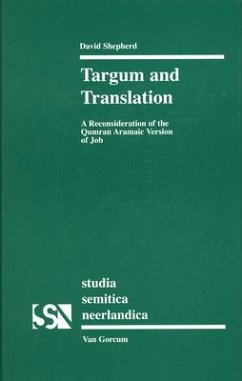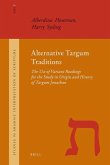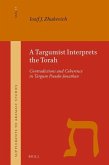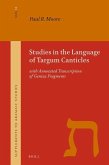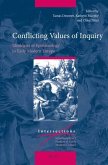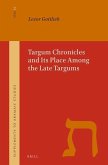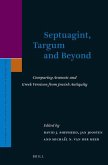For nearly half a century, the Aramaic version of Job found amongst the scrolls at Qumran has been celebrated as the earliest example of that unique genre of Jewish bible translation known to the Rabbis as targum. In this groundbreaking study, the author challenges this assumption by re-evaluating this significant Qumran text in light of other ancient Aramaic versions of Job, including the Peshitta and Targum. After a fresh review of five decades of research on the Qumran text, the author draws on recent work in the study of the ancient Aramaic versions to chart a new course in its exploration. While both similarities and differences of approach among the respective Aramaic translators are illuminated by a series of examples drawn directly from the texts, the rigorous scrutiny of each version's re-presentation of its source text provides a firm basis for a reassessment of the relationship between the Qumran Aramaic version of Job and its Syriac and Targumic counterparts. By situating the Qumran version within the broader context of other ancient Aramaic versions, the author makes a significant contribution to our understanding of Aramaic idiom and style in the time of the Second Temple. More importantly, however, he offers a radical revision of the Aramaic version of Job's classification and a new and innovative perspective on its place in the panoply of ancient bible versions originating in this crucial period.
Hinweis: Dieser Artikel kann nur an eine deutsche Lieferadresse ausgeliefert werden.
Hinweis: Dieser Artikel kann nur an eine deutsche Lieferadresse ausgeliefert werden.

